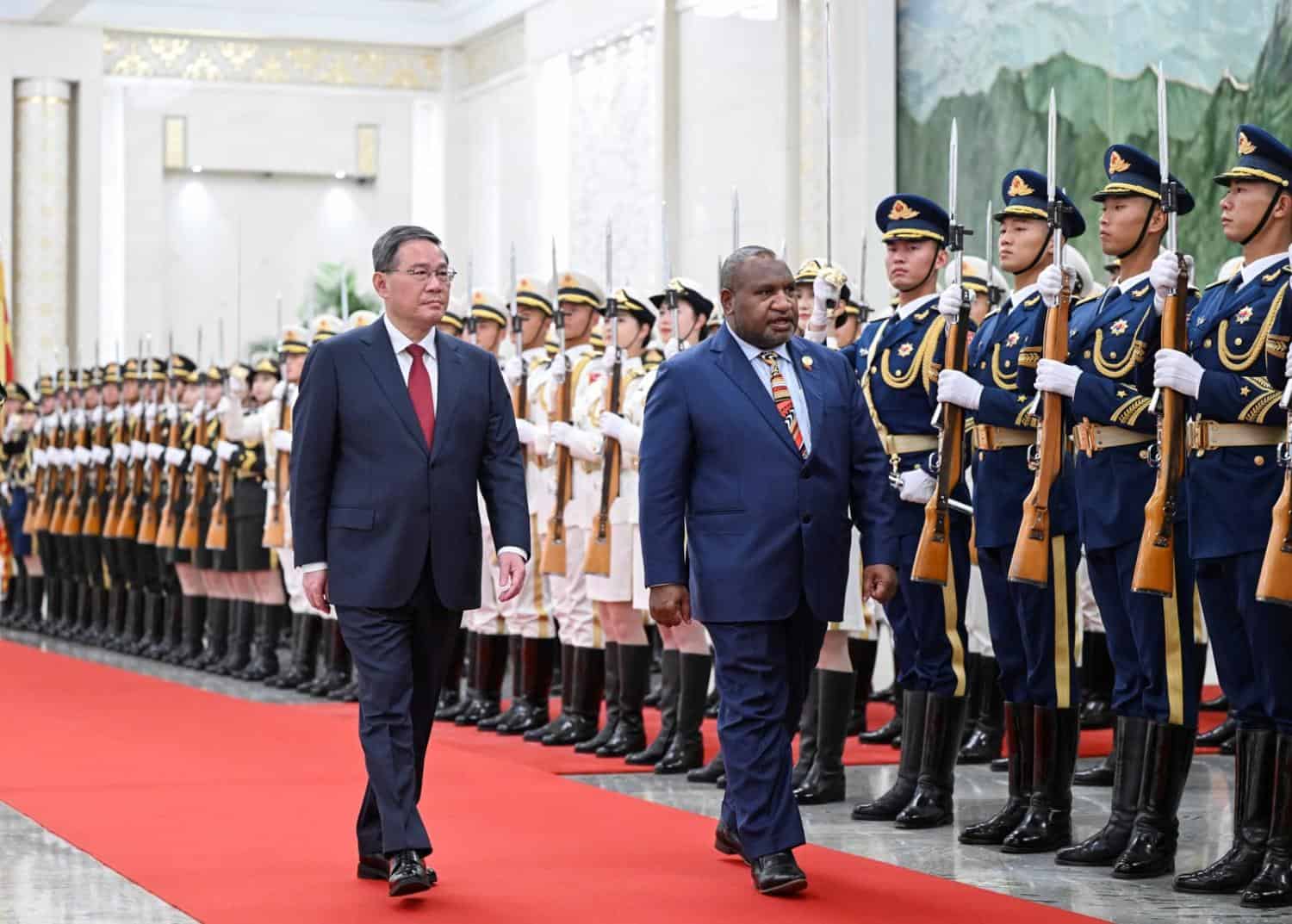China’s Foreign Minister Wang Yi is expected in Papua New Guinea this weekend to sign an agreement clearing the way for PNG’s agricultural exports to enter the Chinese market.
This step has already caught international attention, particularly with the lowering of biosecurity hurdles, and follows the preferential access China offered to PNG for its seafood products in 2020.
Much has been said about China’s growing influence in the Pacific, and the West’s response, but it’s evident China is executing a well-crafted, long term plan.
The agency of Pacific nations themselves is often drowned out in the narrative focusing on China and the rivalry with the West. While China has its interests, it is equally true that Pacific Island countries see China as a useful partner.
China approaches the Pacific offering infrastructure funds and promising future market access without the regulatory burdens faced with other trading partners. China also does not have the same historical baggage many Western countries have to tip-toe around, ranging from the Banabas displaced for phosphate mining to Marshall Islanders’ enduring health complications from nuclear tests, or stories about segregated pubs in Port Moresby during the colonial days.
This doesn’t make the Pacific receptive to China’s efforts to sell its institutional lessons. The region has embraced the democratic legacy of the colonial powers, notwithstanding the variances. Even if China wanted to, most of the Pacific, perhaps with the exception of Solomon Islands’ Manasseh Sogavare, would see China’s institutions unappealing.
Language presents a further barrier for China in the region.PNG, much like other Pacific Island nations, is pragmatic in its approach to global powers.China does come to the Pacific with lots of money. The West has responded.
Australia’s “Step Up” initiative, set out in the 2017 Foreign Policy White Paper, and a rollout of policies since, have emphasised development assistance including in education, healthcare, and infrastructure. New Zealand’s “Pacific Reset” of 2018 similarly emphasised collaboration and regional priorities such as climate change and disaster resilience.
The US “Pacific Partnership Strategy” echoed similar themes, emphasising diplomatic engagement and addressing security. Yet, concerns arose regarding the potential alignment of such programs with broader geopolitical agendas primarily focused on countering China, potentially sidelining Pacific Island priorities.
This risked overshadowing genuine development needs, fostering a donor-recipient dynamic rather than true partnership. Critiques pointed to the security-focused approach and urged a stronger economic component.
PNG, much like other Pacific Island nations, is pragmatic in its approach to global powers. It has sought to secure funding from various countries to address its own development priorities, aiming to build a sustainable economy in the long term. For instance, Chinese agriculture giant Wilmar International Limited is partnering with the PNG government to make large-scale agriculture investments in the country.
The agricultural produce will then be exported from ports that Australia is spending $580 million to upgrade. The United States is assisting PNG counterparts in providing maritime security to combat illegal, unreported and unregulated fishing.
The seafood will then be sold to China under the preferential access once details are finalised.As Prime Minister James Marape told the Lowy Institute last year, “the market reach for Papua New Guinea remains very much closer to home than far away.” He has hopes to further engage India, Japan and South Korea.
There is a desire for a free trade agreement with China, which in turn has its eyes on LNG, forestry and mining. But nor is PNG ignoring the risks. The experience with the China-backed Ramu nickel mine, with landholders distressed by environmental and social costs, is reminiscent of earlier experience with the damage caused by Western companies in places such as Ok Tedi and Panguna.
International attention on PNG has brought other benefits, with pledges of further labour mobility and ease of entry to Australia, as well as the prospect of a team from the country playing in the National Rugby League.
This also follows substantial commitments to PNG from Australia, New Zealand, and United States, as well as Japan, including for the rollout of electrical grids and underwater internet cables, which has seen off proposed Chinese investments.
PNG leaders and bureaucrats recognise the importance of China’s presence in attracting much-needed investment.
Driving out China would undermine the region’s bargaining power and could jeopardise future economic opportunities.
While Western powers may provide financial support, a simple buyout from China’s influence seems unlikely.
Michael Kabuni is a PhD candidate at the Australian National University.
The opinions expressed in this article are those of the author and do not necessarily reflect the opinions of this publication.
